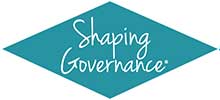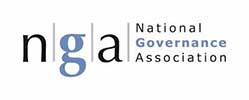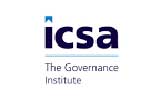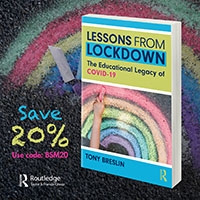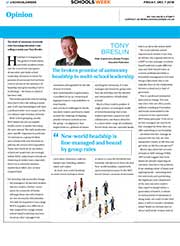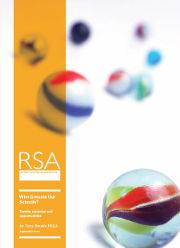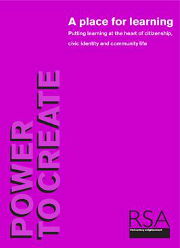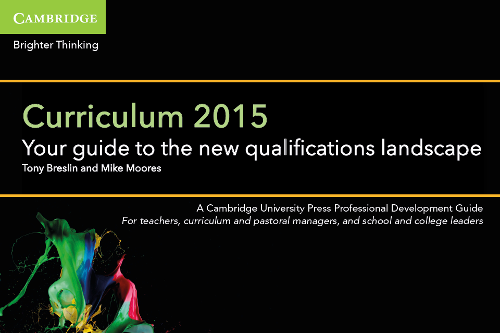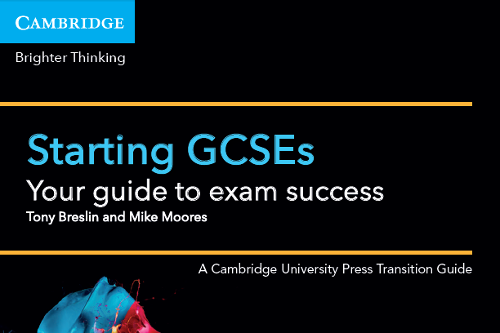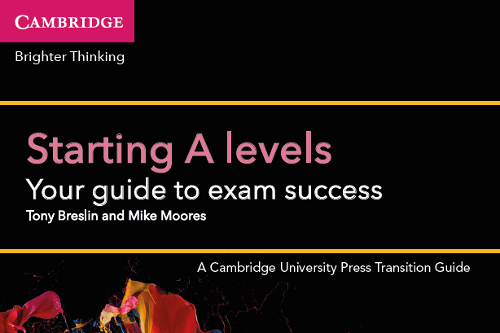












In 1987, 70 per cent of FTSE 100 CEOs had been educated in private schools; by 2007 this figure had dropped to 54 per cent
The Sutton Trust (2018)

"How we exercise governance in our corporations, our hospitals and schools, and our charities is too important to be left to chance"
Cosette Reczek
Permuto Consulting
Transform Governance is a joint venture between Breslin Social Impact and Permuto Consulting


Need consultancy support? We have access to a range of specialists across sectors, across functions, and across the UK and beyond. Contact us to explore possibilities.
Governance during lockdown: can we go governance-light without going governance-free?
Friday 10th April 2020

Most Heads that I’ve spoken with in recent weeks have described the past month or so as one of their most challenging in headship, especially because most schools remain open to support the children of keyworkers and those who are vulnerable.
Since lockdown, there has been much discussion about SATs, GCSEs and A levels but these debates barely scratch the surface of what Heads are currently managing, and the nuanced nature of the day-to-day judgement calls that they are having to make, a task that they are passionate about getting right but one which is far from easy: Who counts as a keyworker? Who counts as a vulnerable child? What level of support should and can schools realistically provide for home study? How well is a particular school equipped to deal with the provision of such support? What does school look like for those still in attendance? How are we going to say good-bye to those moving on to junior or secondary school, or to college, university or employment, or to much-loved staff who are leaving us? Oh, and what am I going to do about the governors?
As governors, one of the things we have to do is to find a way to take that last question off the table, to go governance-light, without going governance-free; we cannot do the latter because our legal and moral responsibilities as members of Governing Boards (as recent advice from the Department for Education and the National Governance Association makes clear) do not disappear. However, we must do the former, and go governance-light, because, frankly, much of the really important stuff that we do in ordinary times will, like the economy, just have to wait. By comparison with those challenges facing Heads on a daily basis, our predicament is much less pressing. Nonetheless, it remains important.
So, what might. ’governance-light’ look like? No trite answers here, but three questions that we might wish to ponder:
- Can we reduce the number of scheduled meetings we hold without abdicating responsibility? During the summer term we know there’ll be a budget to sign-off and we’ll also need to create time for reflection on a school year unlike any other, but can we hold over sub-committee and working group meetings until the Autumn term (or whenever we start up again)? This does not, of course, stop sub-committee members liaising on-line, giving advice or acting as a sounding board, or providing a sometimes vital second set of eyes, if or when the Head needs us to play this role. Nor does it preclude a weekly or fortnightly phone or Skype check-in between the Head and Chair to ensure information flows remain open and support remains accessible. As the latest DFE guidance, cited and supported by the NGA, makes clear: School leaders should stay in touch with the governing board in a proportionate way, including providing information on the welfare of staff and pupils, so that they can retain a strategic overview of the situation and the school (Governing in challenging circumstances: business continuity and holding virtual meetings, National Governance Association, 7 April 2020)
- Can we make sure that any meetings that we do hold are as short and as tightly-focused as they can be? Moreover, can we think about the timing of these (almost inevitably) virtual sessions, taking the needs of our Head and staff governors as a starting point, and baring in mind that home working will have changed the shape of the working day for many? This may offer the possibility of daytime or early evening meetings. It should mean gatherings that are much shorter than we are used to, probably of about an hour in length, or ninety minutes at the outside. And let’s presume non-attendance from any NHS (and other key worker) Board Members (whether or not they are ‘on shift’), and any staff governors who have been ‘in’ that day, while making sure that they’re kept absolutely in the loop.
- Can we minimise the preparation burden on all concerned, especially our Headteacher? Let’s reduce the paperwork (a longstanding aspiration for most of us), perhaps going further than we ordinarily would (or should) by not asking anybody to draft written reports ahead of – or as a result of – our meetings. Instead, let’s put the focus on ensuring that the Head has Board buy-in and, where necessary, formal sign-off for any, as the DFE puts it, “urgent, time-bound decisions” (DFE School Governance Update, 25 March 2020), and on the processes that will enable our senior leaders to take such decisions ‘in the moment’, free in the knowledge that the Governing Board is, well, on board.
The principle behind all of this is simple: we need to ensure that the tone of meetings, messages, phone calls or other communications is entirely at the support end of the ‘support-challenge’ continuum, so that, as the DFE put it, school leaders can “get on with operational matters”; if this were our usual practice, it would not amount to good governance. But these, as we are all too aware, are not ordinary times.
Of course, this will mean some catch-up activity further down the line, but it may also cause us to focus, as never before, on what really matters, and on the quality of our collaboration and partnership. Long term, this may lead to better, more effective governance, and a range of practices that weren’t even on the horizon a month or two ago.
And maybe, just maybe, as we approach another day, week or month in this socially-distanced landscape, let’s be sure to use any time that, as governors, we have to think creatively and pre-emptively in a way that the pace of an ordinary school year denies us.
Right now, we might yearn for that ordinariness but, in the interim, we need to consider the longer-term impact of the system-shock delivered to our schools, and the wider education system, by the virus; schools and school governance might never be the same again. As governors, let’s play our part in shaping the new, as yet unknown, post-COVID-19 reality.
Tweet Share on Facebook